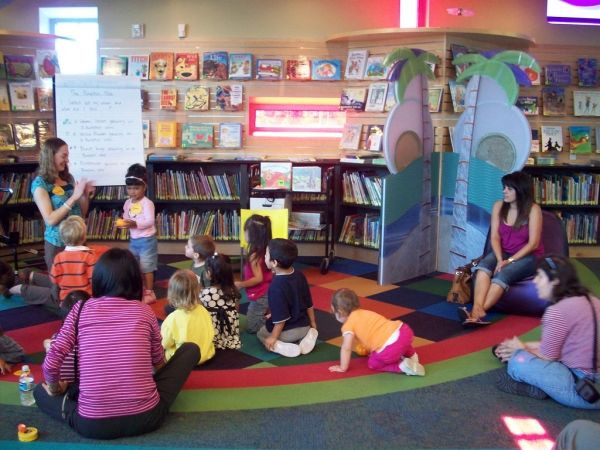Preschoolers' Language Skills Improve When Placed with Advanced Peers

Tell me who your friends are and I’ll tell you who you are, goes the saying.
A new study may add validation to that aphorism, as researchers found that preschool children with relatively poor language skills show better improvements when placed in classrooms with high achieving students.
Previous studies have shown that friends are the biggest influence on a child’s academic performance.
The new study goes hand in hand with previous findings about students and their influences, as researchers have found that children with relatively poor language skills either didn’t improve over the course of an academic year, or lost ground in development of language skills, when they were placed with low achieving students.
The results of the study have important implications because many preschool programs in the United States are targeted to children in poverty, who may lag in their development of language skills, said Laura Justice, lead author of the study and professor in the School of Teaching and Learning at Ohio State University.
"The way preschool works in the United States, we tend to cluster kids who have relatively low language skills in the same classrooms, and that is not good for their language development," Justice said.
"We need to pay more attention to the composition of preschool classrooms."
Although a child’s language skills may be poor, when placed in a classroom with other kids who have relatively low language skills they don’t feel like they’re behind. They don’t feel that they have to push harder to meet the accomplishments of their surroundings, and they are not communicating with advanced students with high language skills.
Justice conducted the study with Yaacov Petscher and Christopher Schatschneider of Florida State University and Andrew Mashburn of the University of Virginia. Their findings appear in the new issue of the journal Child Development.
More than 80 percent of American children participate in preschool, Justice said. About half of these children attend preschool programs that are subsidized through state and or federal dollars, the majority of which only enroll children in poverty.
Because children in poverty face increased risk for poor language skills, that means kids with low skills are often clustered together, she said.
The study, involving 338 children enrolled in 49 preschool classrooms, had the children complete a variety of standardized measures of their language skills in the fall of the academic year. The measures were repeated in the spring, giving the researchers a way to test their improvement over the year.
The measures examined the children’s grammar skills and vocabulary and ability to discuss what was happening in a wordless picture book, the authors wrote.
The researchers also assessed the instructional quality of the children's classrooms to ensure that differences in children's reading skills weren't the result simply of the quality of teaching.
The results showed that children with initially low language skills who were placed in the lowest ability classes tended to lose ground over the course of the academic year and low skilled students in average ability classes improved their language skills between fall and spring.
High ability students don’t suffer by being placed in classrooms with lower-ability students, Justice said. High-ability students improved their scores whether they were in low-ability or average-ability classrooms.
"Children with high language abilities don't seem to be effected by the other kids in their class," she said.
The findings also showed that the very lowest ability students in the lowest-ability classrooms managed to improve their language skills over the course of the year, presumably because the other students in the class, although having low ability, still had higher language skills than those of the lowest.
However, Justice said that the results couldn’t explain how peers affect the language skills of preschoolers. It may be through direct interaction among the children, or it may involve how teacher expectations and efficacy differs depending on the composition of their classrooms.
But the results do suggest that "tracking" students into high and low achievement classrooms may be short-changing the students who most need help.
"If we really want to help lift kids out of poverty, and use preschool as a way to make that happen, we need to reconsider how we provide that education," Justice said.
"Classrooms that blend students from different backgrounds are the best way to provide the boost that poor students need."



























